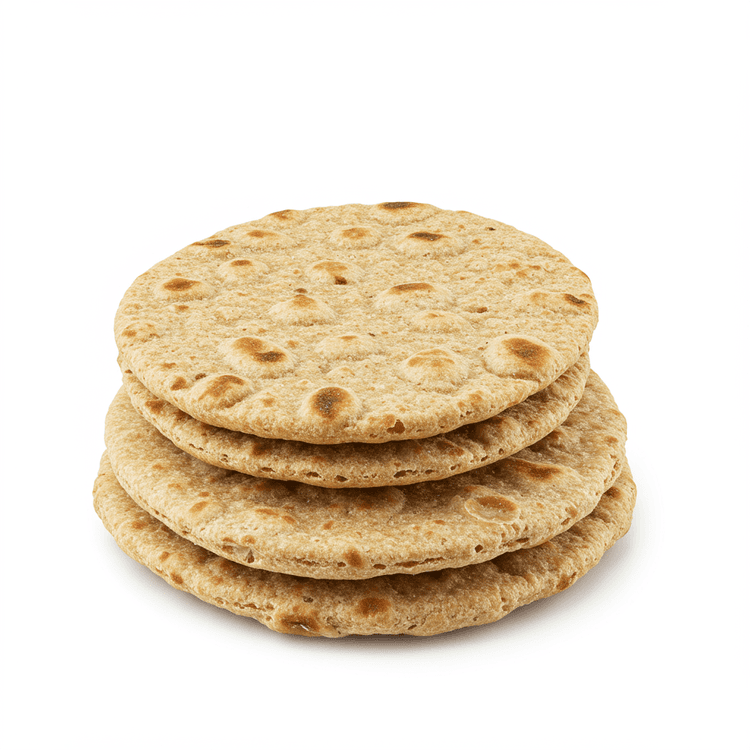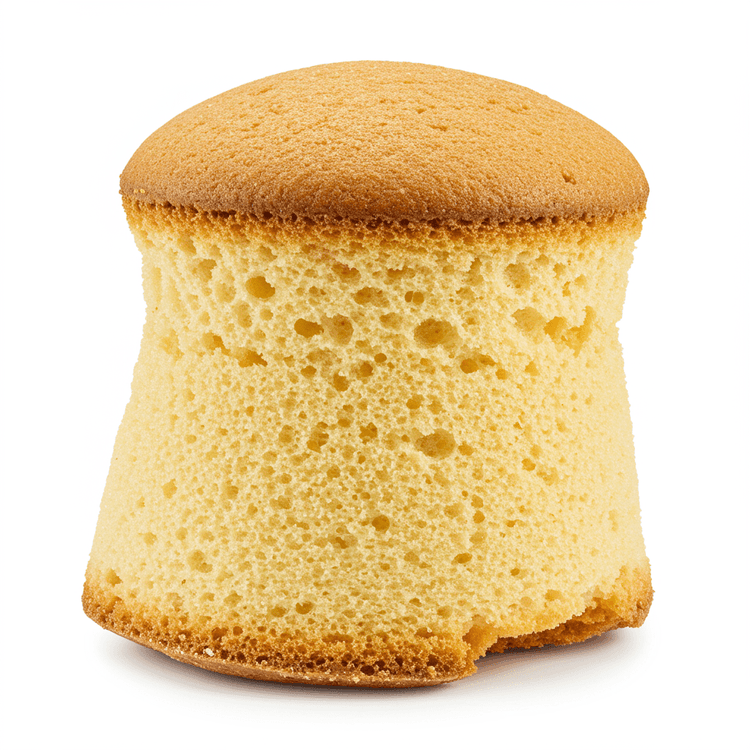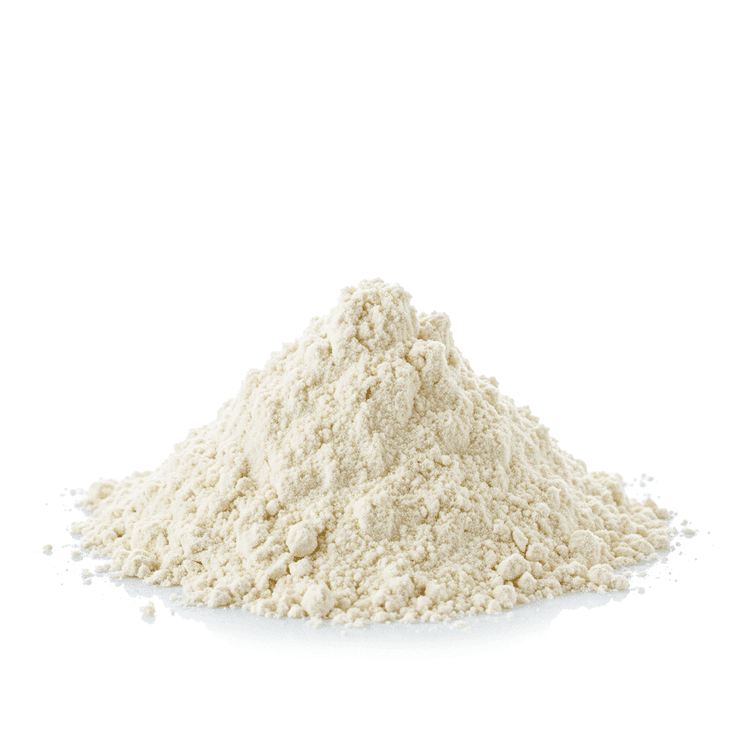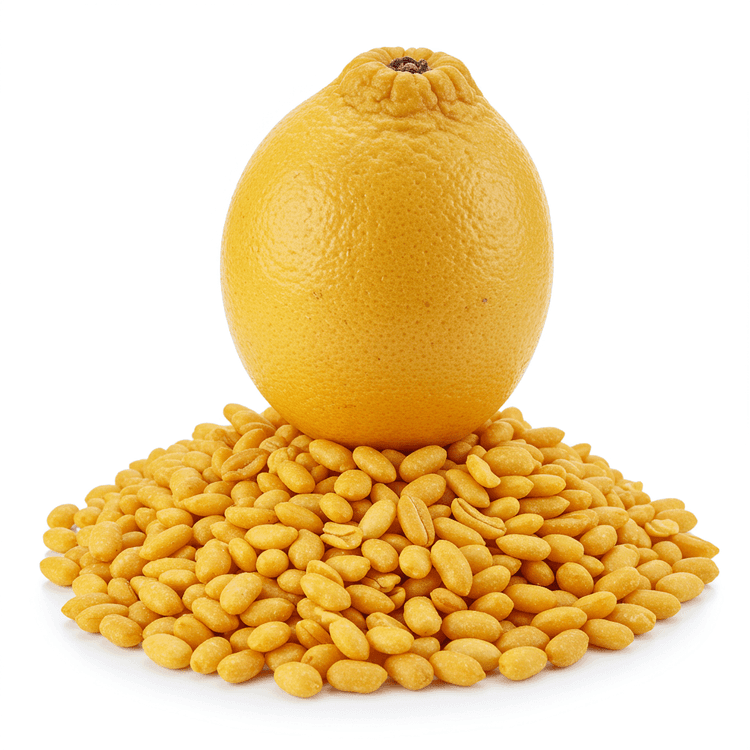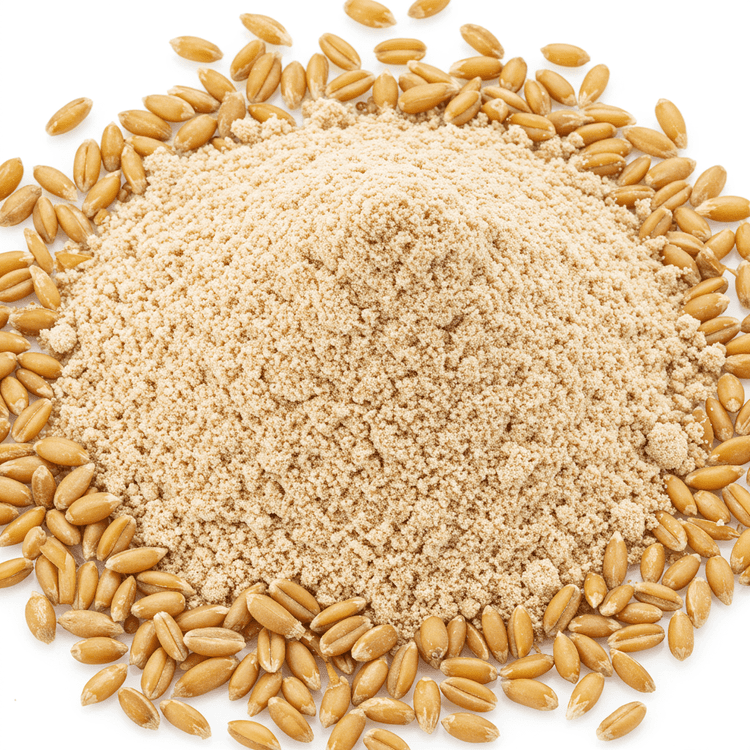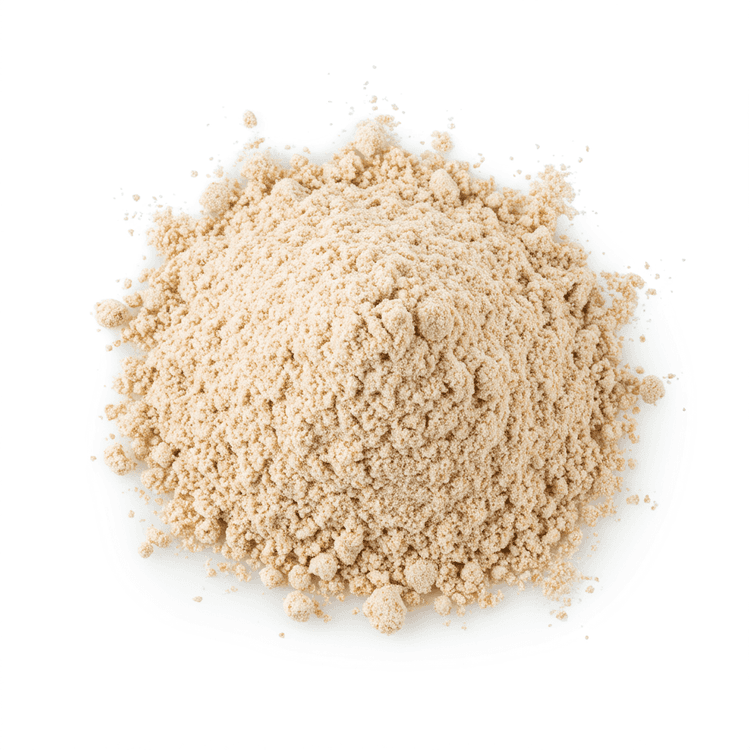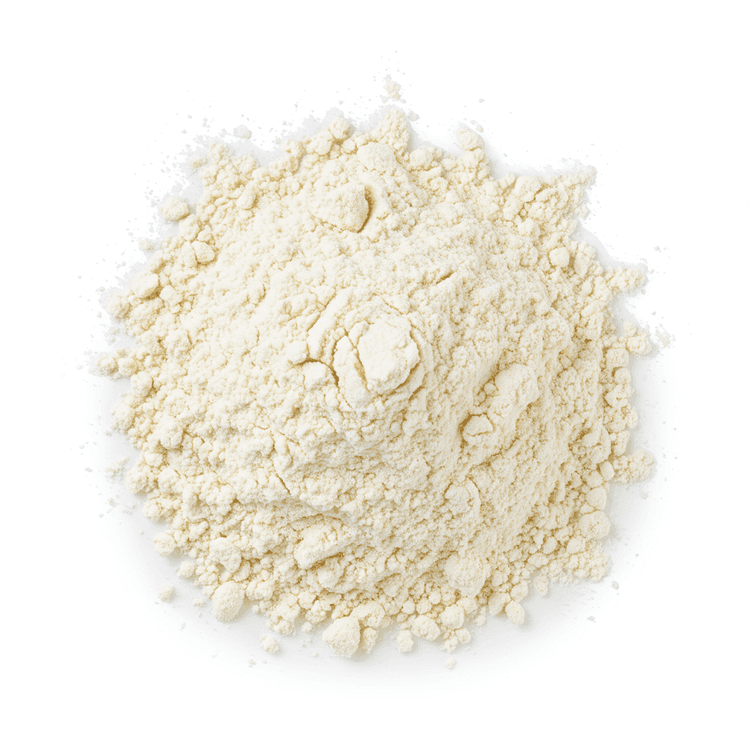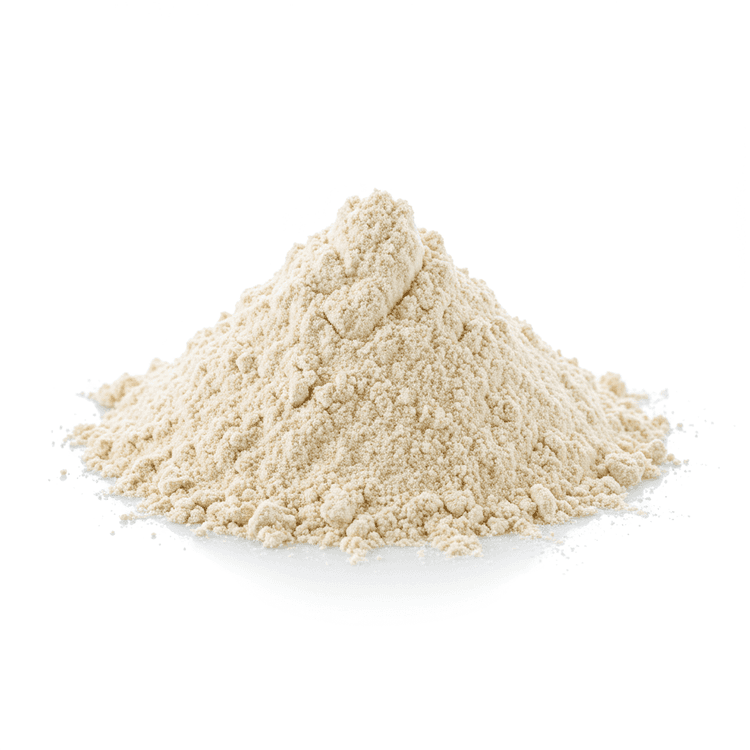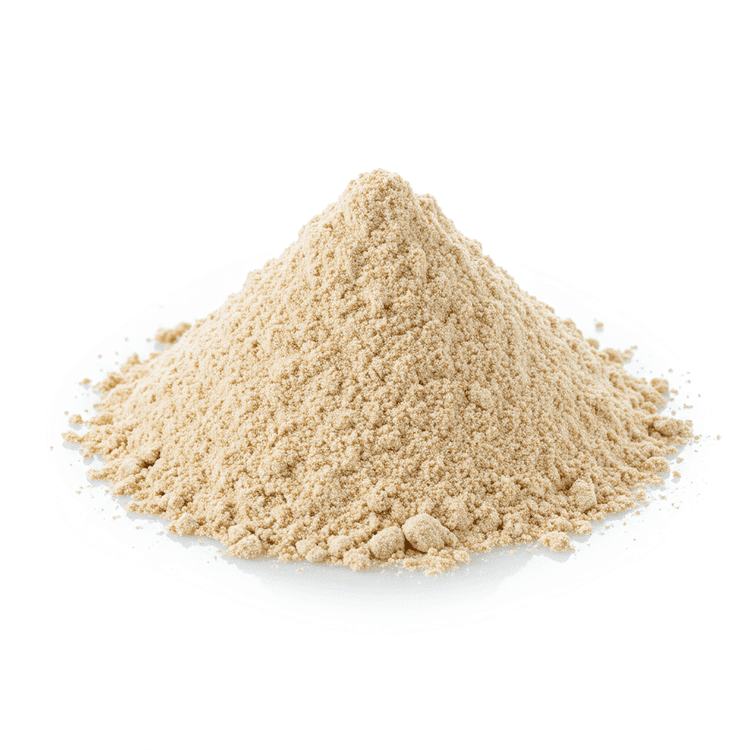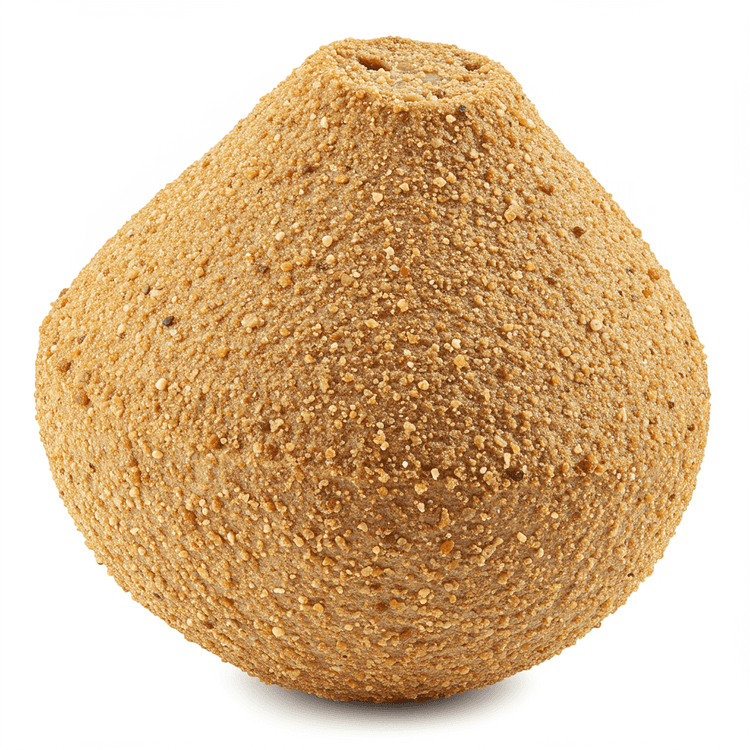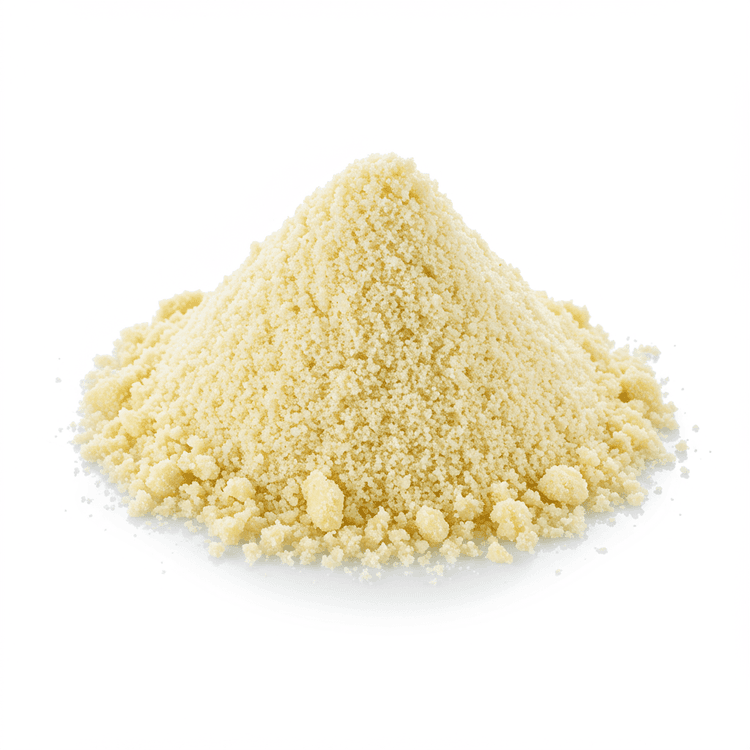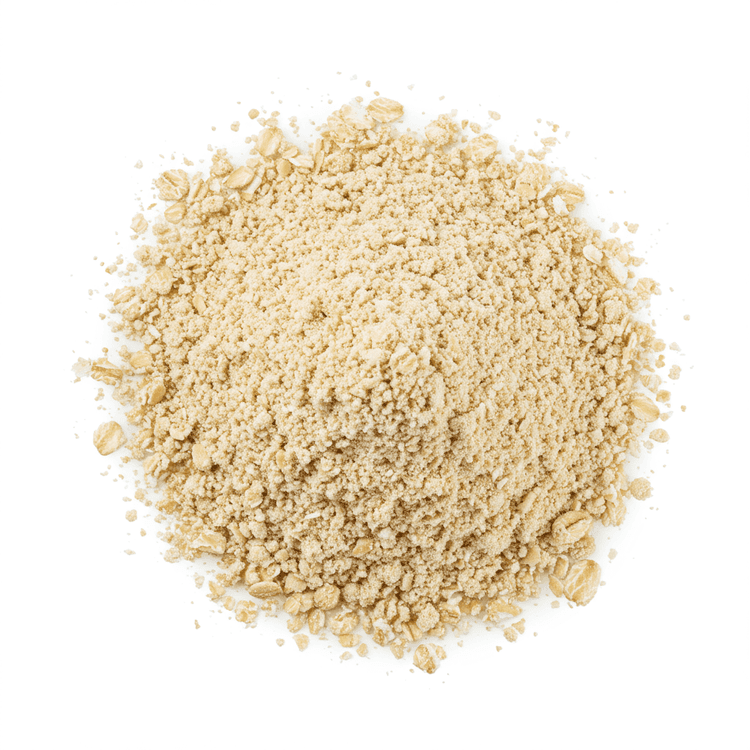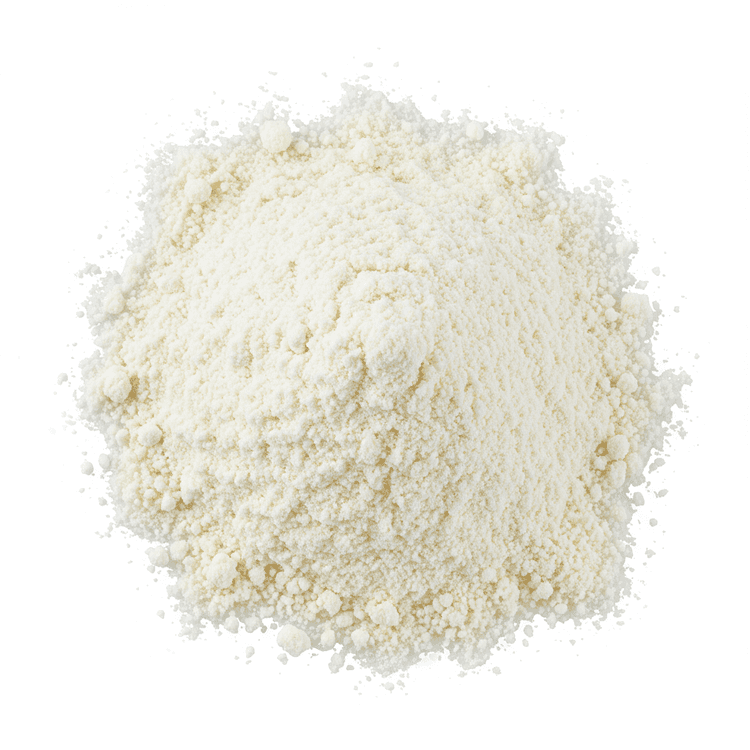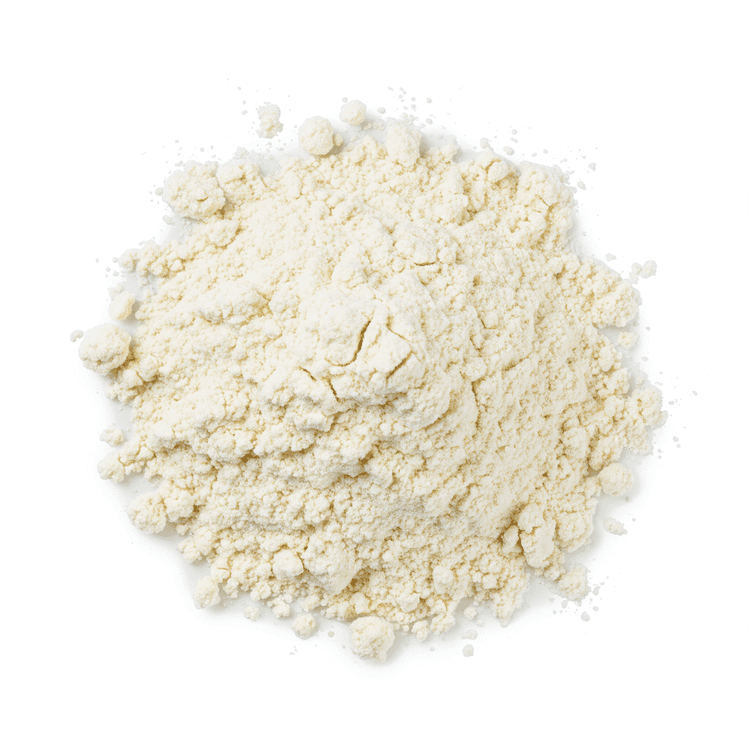
Flour
Flour is a finely ground powder made from grains, most commonly wheat, but also from other grains like rice, corn, or rye, and even nuts or seeds. Wheat flour, the most widely used type, is essential for baking and cooking, providing structure and texture to a vast range of culinary creations. Depending on the milling process and the type of wheat used, flour varies in gluten content. Higher gluten content results in a chewier, more elastic dough, ideal for breads, while lower gluten flours produce more tender baked goods such as cakes and pastries. Its color ranges from creamy white to off-white or even slightly brown, depending on the grain and any added bran. Flour is fundamental to countless recipes worldwide, acting as a binding agent, a thickening agent, and the primary structural component of baked goods.
Common Uses
- Flour is commonly used to make bread, providing the structure and elasticity needed for a light, airy loaf. The gluten in the flour traps the gases produced by the yeast, allowing the dough to rise.- As a key component in cakes, cookies, and pastries, flour contributes to the crumb structure and overall texture. Different types of flour, such as cake flour, are often used to achieve specific results, like a tender crumb.- Flour can be used as a thickening agent in sauces, gravies, and soups. When mixed with liquid and heated, the starch in the flour gelatinizes, creating a smooth and creamy consistency.- It is also used as a coating for fried foods, creating a crispy and golden-brown crust. The flour helps to absorb moisture and provides a surface for browning.- Many types of noodles and pasta are made from flour, water and other ingredients. The flour gives the noodles their firm texture and the ability to hold their shape when cooked. - Flour is used to create a roux, a mixture of flour and fat, used as a base for many sauces and soups, mainly in French cuisine, and contributes to the flavor and texture of the final dish.
Nutrition (per serving)
Nutrition (per serving)
Calories
364.0kcal (18.2%)
Protein
10.3g (20.6%)
Carbs
76.3g (27.75%)
Sugars
0.3g (0.6%)
Healthy Fat
0.8g
Unhealthy Fat
0.3g
% Daily Value based on a 2000 calorie diet
Nutrition (per serving)
Calories
364.0kcal (18.2%)
Protein
10.3g (20.6%)
Carbs
76.3g (27.75%)
Sugars
0.3g (0.6%)
Healthy Fat
0.8g
Unhealthy Fat
0.3g
% Daily Value based on a 2000 calorie diet
Health Benefits
- Provides essential carbohydrates for energy.
- Source of dietary fiber, promoting healthy digestion (especially whole wheat flour).
- Contains vitamins and minerals like iron, folate, and B vitamins, depending on the type of flour.
- Can contribute to feelings of fullness and satiety, aiding in weight management.
- Whole grain flours may help regulate blood sugar levels.
Substitutes
Chefadora AI is here.
Experience smarter, stress-free cooking.
Storage Tips
Flour should be stored in an airtight container in a cool, dry, and dark place to prevent infestation and maintain its quality. All-purpose and other refined flours can be stored at room temperature for several months. Whole wheat flour, due to its higher oil content, is best stored in the refrigerator or freezer to prevent rancidity, extending its shelf life significantly. Ensure the container is properly sealed to prevent moisture absorption, which can lead to clumping and spoilage. Check regularly for any signs of pests or off odors.
Marnirni-apinthi Building, Lot Fourteen,
North Terrace, Adelaide, South Australia, 5000
Australia
